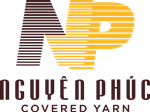INDUSTRIAL SEWING THREADS
Common Types: 20S/2, 30S/3, 40S/2, 50S/3 and How to Choose the Right One
Industrial sewing thread is an essential material in the garment and textile industry. Widely used in manufacturing clothing, bags, backpacks, and other textile products, industrial sewing threads come in various types and sizes to meet diverse production needs. In this article, we’ll explore the most common types of industrial sewing threads and how to choose the right one for different applications.
Key Applications of Industrial Sewing Thread
✅ Fashion apparel, uniforms, and workwear
✅ Backpacks, handbags, luggage, and footwear
✅ Sofa upholstery, car seat covers, and curtains
✅ High-speed industrial sewing machines
Common Types of Industrial Sewing Thread
Industrial sewing threads are categorized based on thickness, strength, and application. Below are the most widely used types:
1. 20S/2 Sewing Thread
20S/2 thread consists of 20 strands twisted into 2 plies. This type is ideal for heavy-duty stitching, making it suitable for thick fabrics and products requiring high durability.
20S/2 thread
2. 20S/9 Sewing Thread
Similar to 20S/2 but thicker and stronger, 20S/9 thread is perfect for heavy-duty applications like protective gear and products that require high tensile strength.
20S/9 thread
3. 30S/3 Sewing Thread
Made from 30 strands twisted into 3 plies, this thread offers excellent durability and is commonly used in sportswear, uniforms, and high-end textile products.
30S/3 Sewing Thread
4. 40S/2 Sewing Thread
With 40 strands twisted into 2 plies, this thread is finer and smoother, making it ideal for delicate fabrics like high-end fashion garments and lightweight textiles.
40S/2 Thread
5. 50S/3 Sewing Thread
The thickest among industrial threads, 50S/3 is made from 50 strands twisted into 3 plies. It’s best for products requiring extreme durability, such as shoes, bags, and heavy-duty stitching.
50S/3 Sewing Thread
How to Choose the Right Industrial Sewing Thread
When ing industrial sewing thread, consider the following factors:
• Fabric Type: Thick fabrics like denim or protective materials require heavy-duty threads (20S/2, 30S/3, or 50S/3), while lightweight fabrics like cotton or silk work best with finer threads (40S/2 or 50S/2).
• Product Application: Durable products like uniforms, sportswear, and protective gear need strong threads (20S/9 or 30S/3), while high-end fashion items require finer, smoother threads (40S/2 or 50S/3).
• Durability & Tensile Strength: For products subjected to high stress (e.g., bags, shoes), opt for 50S/3 or 30S/3 threads.
Conclusion
Industrial sewing thread plays a crucial role in ensuring the quality and longevity of textile products. Choosing the right thread not only enhances product durability but also optimizes production costs. If you’re looking for high-quality industrial sewing threads, contact us for expert advice and the best product solutions.
Contact Us for Industrial Sewing Thread Consultation!
We supply premium industrial sewing threads at competitive prices. Reach out for a free consultation and the best quotes tailored to your needs!
.jpg)
.jpg)
.jpg)
.jpg)
.jpg)
.jpg)
.jpg)
.jpg)



